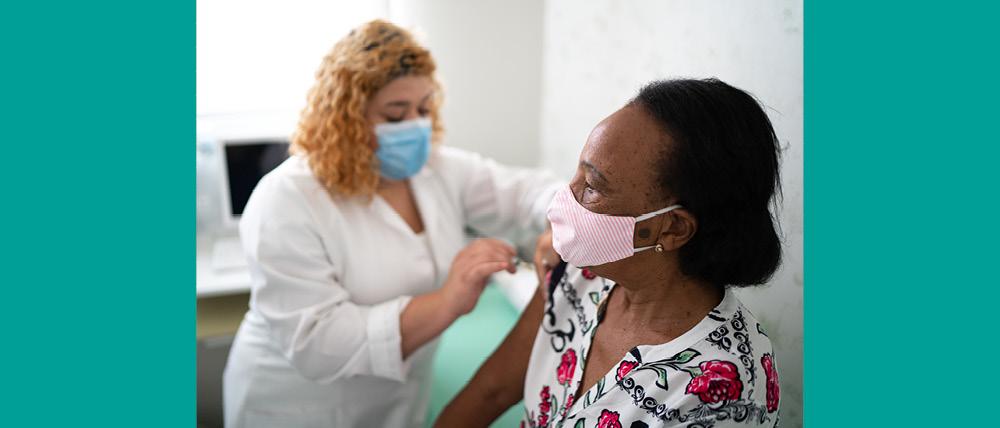COVID-19 vaccination and blood clotting
Published on: 8 April 2021Very rare condition involving blood clots and unusual bleeding after vaccination with the AstraZeneca vaccine.

You may have seen on the news yesterday reports of a very rare condition involving blood clots and unusual bleeding after vaccination. This is being carefully reviewed but the risk factors for this condition are not yet fully clear.
Although this condition remains extremely rare, there appears to be a higher risk in people shortly after the first dose of the AstraZeneca (AZ) vaccine. Around 4 people develop this condition for every million doses of AZ vaccine doses given. This is seen slightly more often in younger people and tends to occur between 4 days and 2 weeks following vaccination.
This condition can also occur naturally, and clotting problems are a common complication of COVID-19 infection. An increased risk has not yet been seen after other COVID-19 vaccines, but is being carefully monitored.
Over 50 years of age or with underlying medical conditions
All older adults (including health and social care workers over 50 years of age), care home residents, health and social care workers* and adults with certain medical conditions were prioritised in the first phase of the programme because they were at high risk of the complications of COVID-19.
The Medicines and Healthcare products Regulatory Agency (MHRA) and the Joint Committee on Vaccination and Immunisation (JCVI) advises that you should still receive any of the available COVID-19 vaccines, as the benefits of vaccination in protecting you against the serious consequences of COVID-19 outweigh any risk of this rare condition. They advise that you should also complete your course with the same vaccine you had for the first dose.
If your first dose was with AZ vaccine without suffering any serious side effects, they recommend you should have the second dose on time as you may still be at high risk of the complications of COVID-19. Having the second dose will give you higher and longer lasting protection.
If you are a healthy younger person aged 18 to 29
Currently JCVI has advised that it is preferable for people under 30 to have a vaccine other than AstraZeneca.
What about the second dose?
If you have already had a first dose of AZ vaccine without suffering any serious side effects, JCVI recommend you should complete the course. This includes people aged 18 to 29 years who are health and social care workers, unpaid carers and family members of those who are immunosuppressed. It is expected that the first dose of the vaccine will have given you some protection, particularly against severe disease.
What should I look out for after vaccination?
Although serious side effects are very rare, if you experience any of the following from around 4 days to 4 weeks after vaccination you should seek medical advice urgently.
- a new, severe headache which is not helped by usual painkillers or is getting worse
- a headache which seems worse when lying down or bending over or
- an unusual headache that may be accompanied by:
- blurred vision, nausea and vomiting
- difficulty with your speech
- weakness, drowsiness or seizures
- new, unexplained pinprick bruising or bleeding
- shortness of breath, chest pain, leg swelling or persistent abdominal pain.
Information taken from Public Health England Covid-19 vaccination and blood clotting Information about your vaccination, gateway number 2021701
8 April 2021
